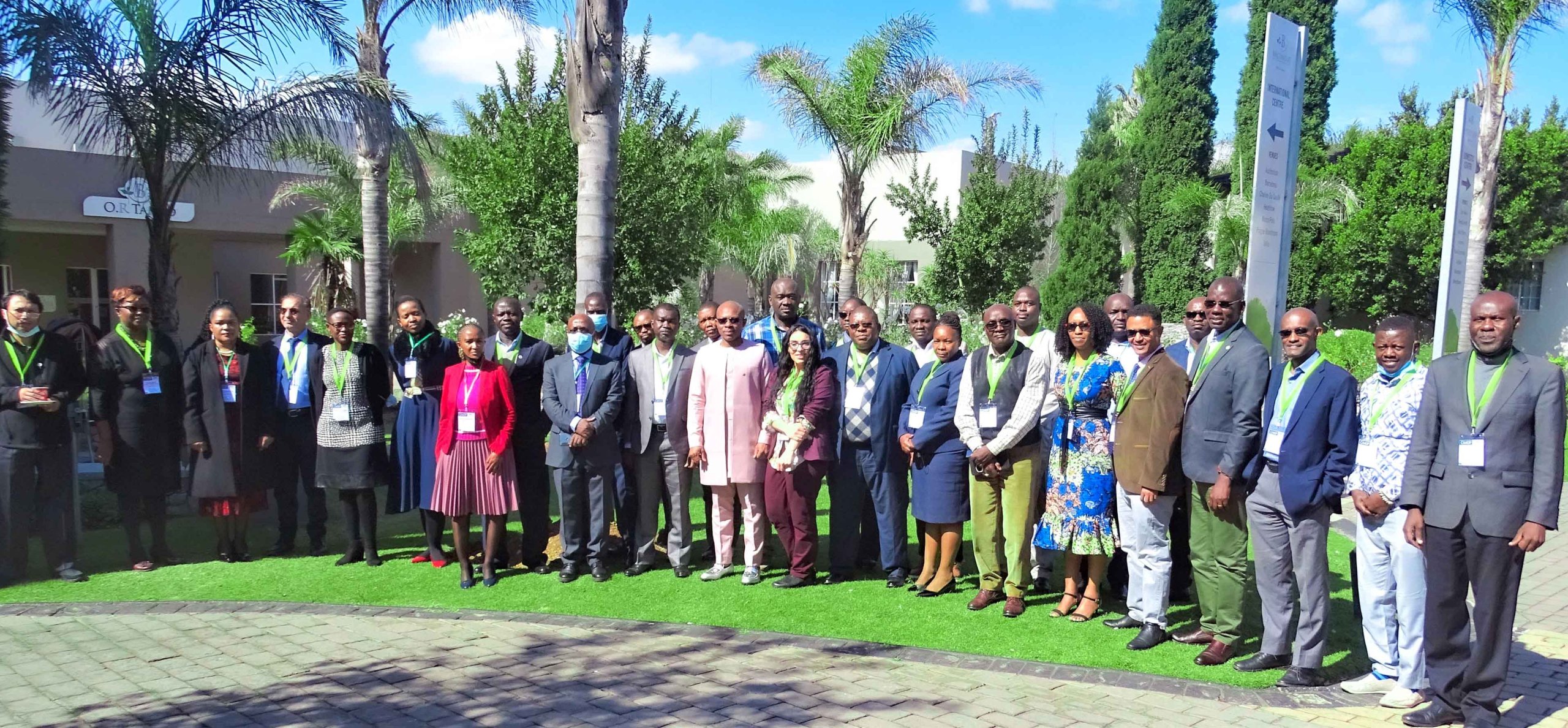IFAD, partners undertake mid-term review of CAADP-XP4 Programme

The CAADP-XP4 Programme is funded by the European Union (EU) under the Development Smart Innovation through Research in Agriculture (DeSIRA) initiative, to the tune of EUR 30 million
By Ben Moses Ilakut
JOHANNESBURG, SOUTH AFRICA—The International Fund for Agricultural Development (IFAD) and African CAADP-X Pillar 4 Institutions: ASARECA, AFAAS, CARDESA, CORAF, and FARA are conducting the Mid-term Review (MTR) of the CAADP-XP4 Programme.
CAADP-XP4 Programme in full is Comprehensive Africa Agriculture Development Programme ex-Pillar 4 African Regional and Sub-Regional Organizations for Agricultural Research and Innovation Programme. Three years into implementation of the Programme, the week-long MTR of the Programme started on May 16, 2020 in Johannesburg, South Africa and is expected to end on May 22, 2022.
Funded by the European Union
The CAADP-XP4 Programme is funded by the European Union (EU) under the Development Smart Innovation through Research in Agriculture (DeSIRA) initiative, to the tune of EUR 30 million over a four-year period (2019- 2023). DeSIRA is an EU initiative aimed at deploying science and innovation to achieve inclusive, sustainable and climate relevant transformation of agriculture and related food systems in partner countries across the globe. ASARECA has been allocated EUR 5, 375 000. The fund is managed by the International Fund for Agricultural Development (IFAD).
CAADP-XP4 partners undertake joint assignments during the MTR in Johannesburg, South Africa
Statements of support
In opening remarks, the EU Policy Officer, Darrell Sextone said; “We are happy with the way IFAD has steered the CAADP-XP4 Project. The European Commission is committing lots of money into financing agri-food systems and is looking forward to successful implementation and delivery of intended impacts of the CAADP-XP4 Programme to the last mile.”
The IFAD Manager for the CAADP-XP4 Programme, Dr. Malu Ndavi, said in an opening statement, “It is commendable that CAADP-XP4 institutions have committed to work together to deliver the intended impacts of the project. IFAD expects that the project activities will influence policies and investments in Agricultural research and development to empower farmers, and motivate the private sector to invest in agri-food systems.”
Commenting on the Programme, IFAD Director for Research and Impact Assessment, Sarah Savastano,
Said, the CAADP-XP4 Programme is an opportunity to influence policy formulation at all levels, boost the visibility of CAADP-XP4 partners at continental, sub-regional, and national levels, as well as enhance the visibility of development partners—the European Commission and IFAD.
The purpose of the MTR is to provide an objective assessment of outputs, achievements and implementation progress towards the intended Programme objectives and goal.
The exercise is expected to identify requirements for adjustment of the Programme to optimize performance and impact and make recommendations to guide implementation until closure. It is also expected to provide clear guidance on the extension period for a possible amendment of the current closing date along with a preliminary budget for project expenditure during the external implementation period.
Contextually, the MTR will oversee the financial management practices put in place by the CAADP-XP4 organizations in the implementation of the Programme to reduce fiduciary risk through an audit simulation.
Goal of CAADP-XP4 Programme
The goal of the CAADP-XP4 Programme is to increase the contribution of research and innovation to the transformation of agriculture for economic growth and inclusive sustainable development of African countries.
Objectives
The Objective is to strengthen the capacities of AFAAS, ASARECA, CCARDESA, CORAF and FARA, to support agricultural knowledge and innovation at national levels to transform agriculture and food systems and influence policy formulation through effective linkages to and use of climate relevant science, knowledge and innovation.
The Programme has five Outputs and these are:
- Output 1: Strengthened Capacity of African regional AR&D Organizations to perform their individual mandates and to better work together;
- Output 2: Multi-stakeholder Partnerships for Innovation established and in operation;
- Output 3: Policies in support of climate relevant agriculture and food systems transformation formulated; investments increased, advocacy and market linkages strengthened;
- Output 4: Knowledge Management: Knowledge Management & Communication for decision support, sharing innovation and advocacy related to climate relevant agriculture transformation;
- Output 5: Effective Planning, Coordination, Monitoring, Evaluation, Learning & Reporting. The expected outcomes is improved effectiveness of African countries’ public policies and investments in agricultural research and extension services and technology development for climate change adaptation and mitigation of agriculture and food systems.
- IFAD Director for Research and Impact Assessment, Sarah Savastano speaks to MTR participants via zoom
Programme Impact
The impact will be climate-relevant, productive, and sustainable transformation of agriculture and food systems in low and middle-income countries in Africa and contribution to the achievement of four SDG Targets: 2.3, 2.4, and 2.5 2a and 13.2.
The review covers five criteria and will entail answering specific questions under each category below:
Relevance: The extent to which the activities are suited to the goals, objectives and mandates of each implementing partner, IFAD, and the EU.
Effectiveness: The difference the Programme is making in practice as measured by the extent to which it contributes to the individual organizations’ goals, objectives and mandates including the extent to which the Programme results have been generated and how they are being used.
Efficiency: Measure of the Programme outputs both qualitative and quantitative, including economic considerations.
Impact: Taking a look at positive and negative changes produced by the supported activities, directly or indirectly, intended or unintended including the positive and negative impact of external factors.
